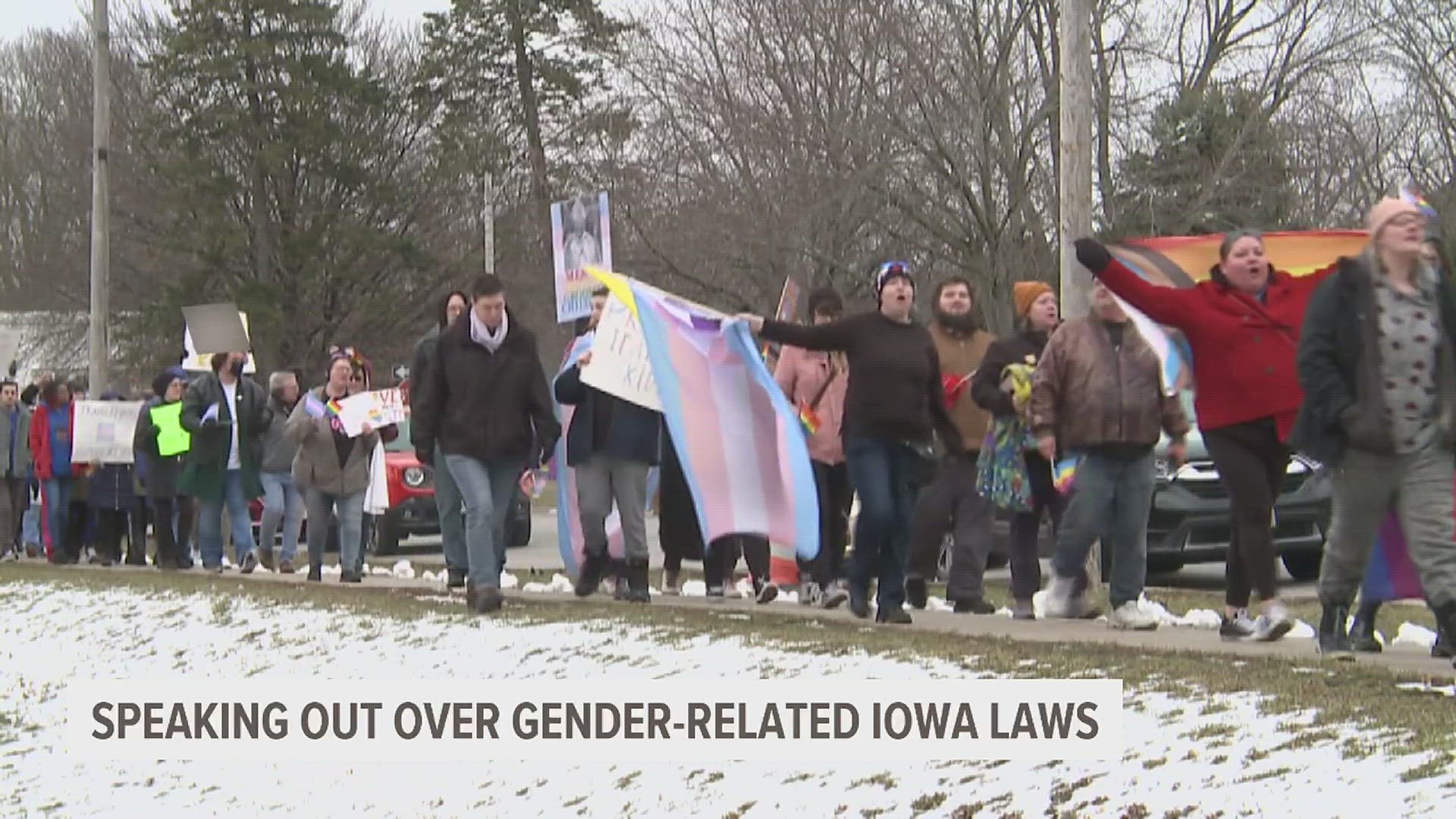BETTENDORF, Iowa — Activists and mental health experts are speaking out over two gender-related bills recently signed into law in Iowa.
Republican Gov. Kim Reynolds signed Senate File 482 and 538 into law on March 22.
Senate File 482 requires transgender youth to use school restrooms that match the sex they were assigned at birth — not the one they identify with.
Senate File 538 bans Iowa doctors from giving all gender-affirming care to people under the age of 18, which includes a variety of prescriptions and surgeries.
"My reaction is mostly disappointment," high school student Binx Hilton said, who helped organize protests in Bettendorf and Davenport against such legislation. "Our legislators, our governors are supposed to be leading us and protecting us. We do not all feel protected — we feel very villainized."
Hilton added that the negative stigma towards members of the LGBTQ+ community prevents sensible discussion about issues.
"It's a very sad thing to see lies being spread about who you are and what you stand for," he said. "I would never imagine doing anything negative to a kid or anyone of the opposite sex or anyone in general, and it's really devastating to see that people think that about me."
Several Republican lawmakers and supporters of Senate File 583 said the law protects kids from life-altering changes they may regret later.
Alexandra Skinner Walsh, licensed mental health expert and owner of M.A.D. (Make a Difference) Therapy doesn't buy the argument.
"What one family might decide for [their child], which might be to opt out of puberty blockers, or hormone replacement therapy... that may be right for them and that's totally OK — but it might not be right for another family," Walsh said. "Each family should have the right to choose what's best for their family."
Walsh is worried about how mental health could worsen for students.
"What we know, statistically, is that LGBTQ+ youth are at four times higher risk of suicidal attempts," she said.
Supporters of Senate file 482 said the restrictions protect students who would feel uncomfortable sharing a restroom with transgender students — but Walsh disagrees.
"If I have to go into a bathroom where I don't look like the other people in the bathroom, that outs me, and it puts me in harm's way — it puts me in danger, I'm more likely to be assaulted, bullied, harassed, or worse," Walsh said.
Both are Hilton and Walsh are hopeful that continued advocacy will lead to change.
"The most important thing is, talk about it and vote," Hilton said. "(Some lawmakers) don't care about us. They don't want to hear from the people that are being affected by this. They want to hear from voters because that's all they care about. They want to stay in office. So if more people know about this, and more people talk about this and disagree with all of this legislation, then they might listen, they might change it or they will get voted out and people will come and we'll change it."
"I think with these bills that are passed, a lot of them are based in misunderstanding, misinformation, miseducation, in ignorance — and I don't say that from a place of judgment," Walsh said. "We're all ignorant in one degree or another — just means that we have a place to grow and learn from. I think the more we can understand the experiences of the trans community, of the LGBTQ+ community at large, the better we can protect everybody in society and the better we can make sure that whatever bills or laws are being passed, that they're ones that truly do protect everybody in the community and really do protect our youth."
According to a study from the Trevor Project, an advocate group for mental health in the LGBTQ+ community, 45% of LGBTQ+ youth seriously considered attempting suicide last year.
Watch more news, weather and sports on News 8's YouTube channel

